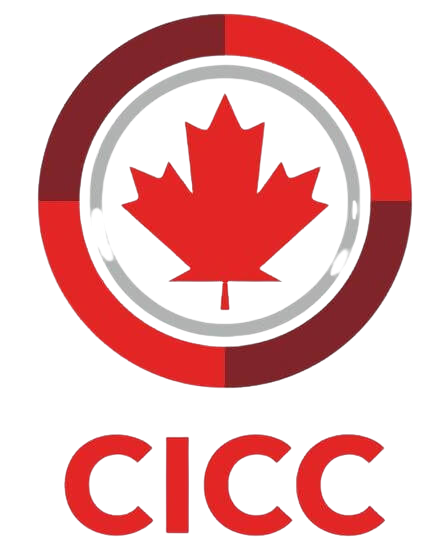If you want to move to Canada, you’ve probably heard of the Express Entry system and the importance of the Comprehensive Ranking System (CRS) score in your immigration application. In this detailed tutorial, we’ll look at what the CRS score is, why it’s essential, and, most crucially, how you can raise your score to boost your chances of getting an Invitation to Apply (ITA) for permanent residency in 2024.
What is the CRS score?
Immigration, Refugees, and Citizenship Canada (IRCC) uses the Comprehensive Ranking method (CRS), a points-based method, to analyze and rank Express Entry applicants. Your CRS score for Express Entry is derived based on several criteria, including:
- Age, education level, and competence in English and French.
- Work experience.
- Adaptability variables (e.g., Canadian education or job experience).
The highest potential Canada CRS score is 1,200 points, with core criteria accounting for up to 600 points and extra factors accounting for another 600 points.
How Much CRS Score Required for Canadian PR?

The CRS score necessary for Canada PR via Express Entry fluctuates per draw, depending on the number of ITAs granted and the pool of applicants. However, in recent years, the minimum CRS score for Federal Skilled Worker (FSW) and Canadian Experience Class (CEC) drawings has generally been between 450 and 470 points.
It’s vital to understand that there isn’t a set “passing score.” The cut-off score varies according to the competition in each draw. To enhance your chances, shoot for the greatest possible score.
How Much CRS Score Required for Canada’s PNP?
PNP drawings often need a lower CRS score than FSW or CEC draws. This is because candidates who get a provincial nomination are automatically given an extra 600 points on their CRS score.
In recent PNP-specific drawings, minimum scores have ranged from 680 to 720. Remember that this includes the 600-point increase from the provincial nomination. Without the nomination, these candidates’ ratings may have been as low as 80-120 points.
Recent CRS Canada draw
To help you understand current patterns, below are some samples of CRS score requirements from recent Express Entry draws:
- March 15, 2024: CRS: 485 (FSW)
- February 29, 2024: CRS is 691 (PNP).
- February 14, 2024: CRS = 498 (CEC)
Remember that these scores might vary with each draw, so keep up with the most recent draw outcomes.
How To Improve Your Canada CRS Score

Now that we’ve established the significance of a high CRS score let’s look at techniques for improving your score:
1. Enhance Your Language Skills
Improving your English and French skills may have a big influence on your CRS score. Aim for greater Canadian Language Benchmark (CLB) scores, especially in reading and writing. Consider taking language classes or practicing with native speakers to enhance your abilities before retaking the IELTS, CELPIP, or TEF exams.
2. Gain More Work Experience
Additional years of competent job experience may improve your CRS score for express entry. If feasible, continue working in your profession to gain experience before applying.
3. Upgrade your education
Completing a higher level of schooling may improve your score. Consider earning a master’s degree or extra postsecondary certifications. Remember to get your international educational qualifications evaluated via an Educational Credential Assessment (ECA).
4. Obtain a valid job offer
A genuine employment offer from a Canadian business might increase your CRS score by up to 200 points, depending on the skill level of the position.
5. Consider Provincial Nomination
As previously stated, receiving a provincial nomination adds 600 points to your score, almost ensuring an ITA in the next Express Entry lottery. Investigate various PNP streams and their criteria to locate one that fits your profile.
6. Gain Canadian Work Experience
Gaining job experience in Canada may considerably improve your score. If you’re thinking about studying in Canada, consider the International Experience Canada (IEC) program or post-graduate work permits.
7. Improve your spouse’s profile
If you’re applying alongside a spouse or common-law partner, their language abilities, education, and Canadian job experience may help boost your total CRS score.
8. Stay current and be strategic
Keep an eye on the Express Entry draw patterns and change your approach appropriately. Sometimes, waiting a few months to get additional job experience or enhance language skills might make a big difference.
Conclusion
Improving your crs score for express entry in 2024 demands commitment and smart strategy. Increase your chances of acquiring an ITA by focusing on crucial areas such as language competency, job experience, and education, as well as researching possibilities such as provincial nominations.
Remember that the path to Canadian permanent residency is a marathon, not a sprint. Stay up to date on the newest trends in CRS score requirements and Express Entry draws with Croyez Immigration Services, one of the leading immigration consultants in Chennai, and strive to improve your profile on an ongoing basis. With determination and the appropriate attitude, you may make your goal of living in Canada a reality.
For personalized assistance on improving your CRS score and navigating the Express Entry process, get in touch with Croyez Immigration. Our experts are here to guide you every step of the way toward achieving your Canadian immigration goals.
FAQs
Q1: What is the minimal CRS score for obtaining an ITA?
Ans: There is no set minimum; it fluctuates per draw, often ranging from 450 to 470 for FSW/CEC drawings.
Q2: How frequently are Express Entry drawings held?
Ans: Express Entry drawings are normally held every two weeks, although the frequency varies.
Q3: Can I apply for Express Entry without a job offer?
Ans: A job offer is not required. However, it may improve your CRS score.
Q4: How long does my Express Entry profile remain valid?
Ans: Your Express Entry profile is valid for twelve months from the date of submission.
Q5: Does ageing affect my CRS score?
Ans: Candidates aged 20 to 29 earn the most points for their age, with scores dropping before and beyond this range.










